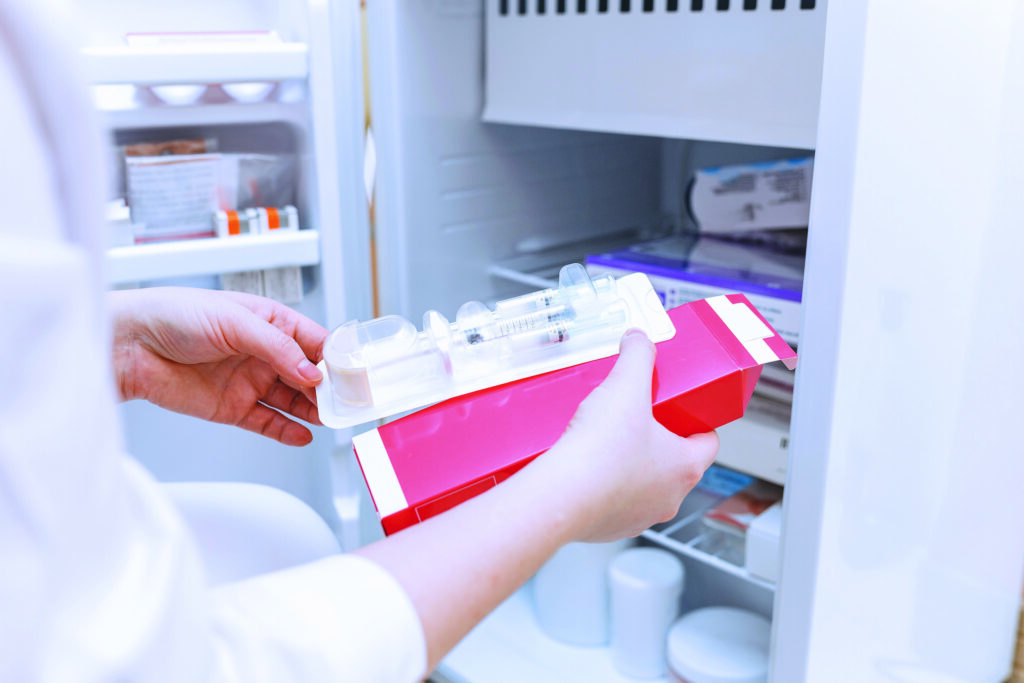Maintaining vaccines in an optimum environment is crucial to their efficacy and vital to avoiding costly pharmaceutical waste. Mike Butt looks at how temperature impacts vaccines and shares guidance for storing them correctly to avoid waste and protect patients
The Covid-19 pandemic has shone fresh light on the vital role of vaccines in maintaining healthy communities, taking pressure off overburdened health services and keeping economies afloat.
As Ireland prepares to juggle the impact of the pandemic with the onset of traditional flu season, the pressure on services — and the Health Service Executive’s €16 billion budget — has potentially never been greater.
Any contribution to mitigating the financial burden on the HSE is therefore to be welcomed, and avoiding pharmaceutical waste is one way in which community and hospital pharmacies can play their part.
The costs associated with the loss and replacement of compromised vaccines should not be underestimated. For example, figures available for the UK during 2018 show that vaccine wastage had a list price value of around £6.3 million. In terms of doses, about half of the reported incidents were avoidable, with many relating to incorrect storage. But in terms of cost, they accounted for 73 per cent (£4.6 million) of the value of reported wastage.
It is believed this figure is likely to be under-reported and the true financial cost is even greater. This pattern of wastage is unlikely to differ significantly in Ireland.
Impact of badly-stored vaccines
The active chemicals in vaccines and other medication can change in molecular form when exposed to different temperatures. For example, measles and the combined MMR vaccines could have their potency reduced by higher temperatures, while the hepatitis B and HPV vaccines are sensitive to temperatures which are too cold.
Vaccines naturally biodegrade over time and being stored outside their recommended temperature range may speed up this loss of potency. This impact cannot be reversed and a vaccine may then fail to create the desired immune response and provide protection.
To get a sense of the scale of the potential impact of ineffective or wasted vaccines, you only have to consider that among Ireland’s 4.9 million population:
? There is a 90 per cent-plus uptake of vaccinations from infants up to the age of five in Ireland.
? 53.2 per cent of healthcare workers in acute hospitals, and more than 42.3 per cent of healthcare workers in long-term care facilities, received a seasonal flu vaccine during 2018/2019.
? All first-year students in secondary schools now receive the human papillomavirus (HPV) vaccine.
The Covid-19 vaccine, which is anticipated to be available in the not-too-distant future, will bring the benefit of enhanced public immunity, but also further responsibility for the pharmacists who store it.
In light of this, the importance of storing vaccines appropriately has arguably never been more critical.
Avoid waste and protect the public
The ‘cold chain’ is designed to protect vaccines and other biologics from point of manufacture, through their transportation to pharmacies, where they must be safely stored before being distributed to clinical locations, such as GP surgeries. Pharmacies are an important link in this chain.
Vaccines must be shipped and stored at lower than ambient temperatures to assure their quality and efficacy. Failure to store them according to manufacturers’ strict temperature requirements can invalidate the expiry date and cause manufacturers to disclaim responsibility for any apparent failure of the medicine, as the safety and effectiveness of such medicines can be significantly compromised or unknown.
To minimise this risk, pharmacies should have named individuals responsible and accountable for the receipt and storage of vaccines and other temperature-sensitive medicines, and the monitoring and recording of fridge and ambient room temperatures.
Care must also be taken to ensure the unit is sited in a well-ventilated room, maintained between 10°C and 25?C, away from external windows and all heat sources
Crucially, refrigerators used for the storage of medicines must be designed specifically for that purpose. Standard domestic refrigerators cannot be used for storing cold chain products for a number of reasons, including an uneven temperature distribution (as a result of minimal air circulation) and a normal operating range of between 0°C and 10°C.
The refrigerator used must also be of an appropriate size for the quantity of stock to be stored, ie, filled to no more than 75 per cent capacity to allow adequate air circulation. It must also be reserved exclusively for the storage of vaccines and other pharmaceutical products and not used to store food, blood, milk, drink or anything else representing a contamination risk.

Care must also be taken to ensure the refrigeration unit is sited in a well-ventilated room, maintained between 10°C and 25?C, away from external windows and all heat sources, ie, radiators or direct sunlight, and at least 5-to-10cm from walls and other units. To ensure its ongoing effectiveness, any pharmacy refrigeration unit must be serviced according to manufacturer’s instructions and have its integral thermometer independently calibrated to ensure readings are true.
Finally, the medical refrigerator must be cleaned regularly and the internal stock should be stored according to first expiry. Trust in vaccines is high in Ireland — 73 per cent, according to biomedical research charity Wellcome. By following these simple guidelines for the storage of vaccines, pharmacies can play a significant part in maintaining that trust.
Author: Mike Butt, Managing Director at LEC Medical







